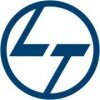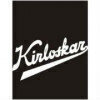i
Chemtron Science Laboratories
Filter interviews by
Chemtron Science Laboratories Interview Questions and Answers
Chemtron Science Laboratories Interview Experiences
7 interviews found
(1 Question)
- Q1. Cost of goods Sold (JE)
- Ans.
Cost of goods sold (COGS) is the total cost of manufacturing and selling products during a specific period.
COGS includes direct costs like materials and labor, as well as indirect costs like overhead.
COGS is calculated by adding the beginning inventory to purchases and subtracting the ending inventory.
Journal entry for COGS involves debiting COGS account and crediting inventory accounts.
Example: If beginning inventory ...
(2 Questions)
- Q1. COGS Journal entry (COGS related questions).
- Q2. Excel Knowledge
Interview Preparation Tips
Cost Trainee Interview Questions asked at other Companies
I applied via Walk-in and was interviewed before Apr 2023. There were 4 interview rounds.
(1 Question)
- Q1. Basic questions
(3 Questions)
- Q1. Interviewed by AGM for technical know how
- Q2. Which equipment’s you sold earlier
- Ans.
I have sold a variety of equipment including industrial machinery, office supplies, and electronic devices.
Industrial machinery such as CNC machines and forklifts
Office supplies like printers, copiers, and scanners
Electronic devices including laptops, smartphones, and tablets
- Q3. Engineering parameters
(1 Question)
- Q1. Director Interview to understand entrepreneurial thinking
Normal aptitude test
Interview Preparation Tips
DEP Manager, Sales Interview Questions asked at other Companies
I applied via Naukri.com and was interviewed before Dec 2023. There was 1 interview round.
(2 Questions)
- Q1. About yourself, job experience
- Q2. Technical Knowledge
Executive Interview Questions asked at other Companies
Chemtron Science Laboratories interview questions for popular designations
I applied via Walk-in and was interviewed in Mar 2023. There were 5 interview rounds.

(1 Question)
- Q1. Normal questions, why you want to join. Who are you and all
(1 Question)
- Q1. Checking technicals aspects entered in resume, much inclined in knowing if candidate can be trained as required
Analytical skills time bound
(1 Question)
- Q1. Entrepreneurship within employment, deep dive into knowing if the candidate really has what he needs to have to be part of this organisation l
Interview Preparation Tips
DEP Manager, Sales Interview Questions asked at other Companies
I applied via Recruitment Consulltant and was interviewed before Jan 2024. There was 1 interview round.
(1 Question)
- Q1. Previous company job roles
- Ans.
I have worked as a Production Engineer at XYZ Company for the past 3 years.
Managed production processes to ensure efficiency and quality
Collaborated with cross-functional teams to optimize production schedules
Implemented continuous improvement initiatives to increase productivity
Troubleshooted equipment issues and implemented solutions
Trained new employees on production procedures
Production Engineer Interview Questions asked at other Companies
Jobs at Chemtron Science Laboratories
I applied via Recruitment Consulltant and was interviewed before Sep 2021. There were 2 interview rounds.
(2 Questions)
- Q1. Personal details family amd educational qualifications
- Q2. Previous work experience
(2 Questions)
- Q1. Job profile discusaion
- Q2. Salary discusaion? An finalisation
Interview Preparation Tips
Sales Executive Interview Questions asked at other Companies
Top trending discussions






Interview questions from similar companies

Senior Engineer Interview Questions & Answers
Larsen & Toubro Limitedposted on 18 Nov 2020
Interview Questionnaire
3 Questions
- Q1. What is android architecture stack?
- Q2. What is AIDL?
- Ans.
AIDL stands for Android Interface Definition Language, used for inter-process communication in Android.
AIDL is used to define the interface between client and service in Android.
It allows communication between different processes in Android.
AIDL is used to pass complex data types between processes.
AIDL is similar to Remote Procedure Call (RPC) in other programming languages.
Example: AIDL is used in Android to implement...
- Q3. What is hash set and hash map
- Ans.
Hash set and hash map are data structures used to store key-value pairs for efficient retrieval.
Hash set stores unique values without any specific order.
Hash map stores key-value pairs and allows fast retrieval of values based on keys.
Both use hashing to map keys to their corresponding values.
In Java, HashSet and HashMap are implementations of these data structures.
Skills evaluated in this interview

Assistant Manager Interview Questions & Answers
Larsen & Toubro Limitedposted on 23 Oct 2021
I applied via Naukri.com and was interviewed in Nov 2020. There were 3 interview rounds.
Interview Questionnaire
1 Question
- Q1. Be clear on salary negotiation
Interview Preparation Tips

I applied via Recruitment Consultant and was interviewed before Nov 2020. There were 4 interview rounds.
Interview Questionnaire
2 Questions
- Q1. Three people seat and asked Just simple technical questions frequently from civil engineering in hindi & English and watched the confidence level also. Some difficult questions is also there but they have ...
- Q2. Forget now because long years ago it has been done.
Interview Preparation Tips
Chemtron Science Laboratories Interview FAQs
Tell us how to improve this page.
Chemtron Science Laboratories Interviews By Designations
- Chemtron Science Laboratories DEP Manager, Sales Interview Questions
- Chemtron Science Laboratories Executive Interview Questions
- Chemtron Science Laboratories Production Engineer Interview Questions
- Chemtron Science Laboratories Sales Executive Interview Questions
- Chemtron Science Laboratories Cost Trainee Interview Questions
Interview Questions for Popular Designations
Chemtron Science Laboratories Interview Process
based on 5 interviews
Interview experience
Interview Questions from Similar Companies
Chemtron Science Laboratories Reviews and Ratings
based on 47 reviews
Rating in categories
|
Project Engineer
20
salaries
| ₹2 L/yr - ₹5.3 L/yr |
|
Design Engineer
11
salaries
| ₹4.1 L/yr - ₹5.1 L/yr |
|
Sales Coordinator
6
salaries
| ₹3 L/yr - ₹3.8 L/yr |
|
CNC Operator
5
salaries
| ₹1.5 L/yr - ₹2.5 L/yr |
|
QC Lab Chemist
5
salaries
| ₹1.4 L/yr - ₹3.5 L/yr |

Larsen & Toubro Limited

HPCL-Mittal Energy Limited

Kirloskar Brothers

Zetwerk
- Home >
- Interviews >
- Chemtron Science Laboratories Interview Questions










